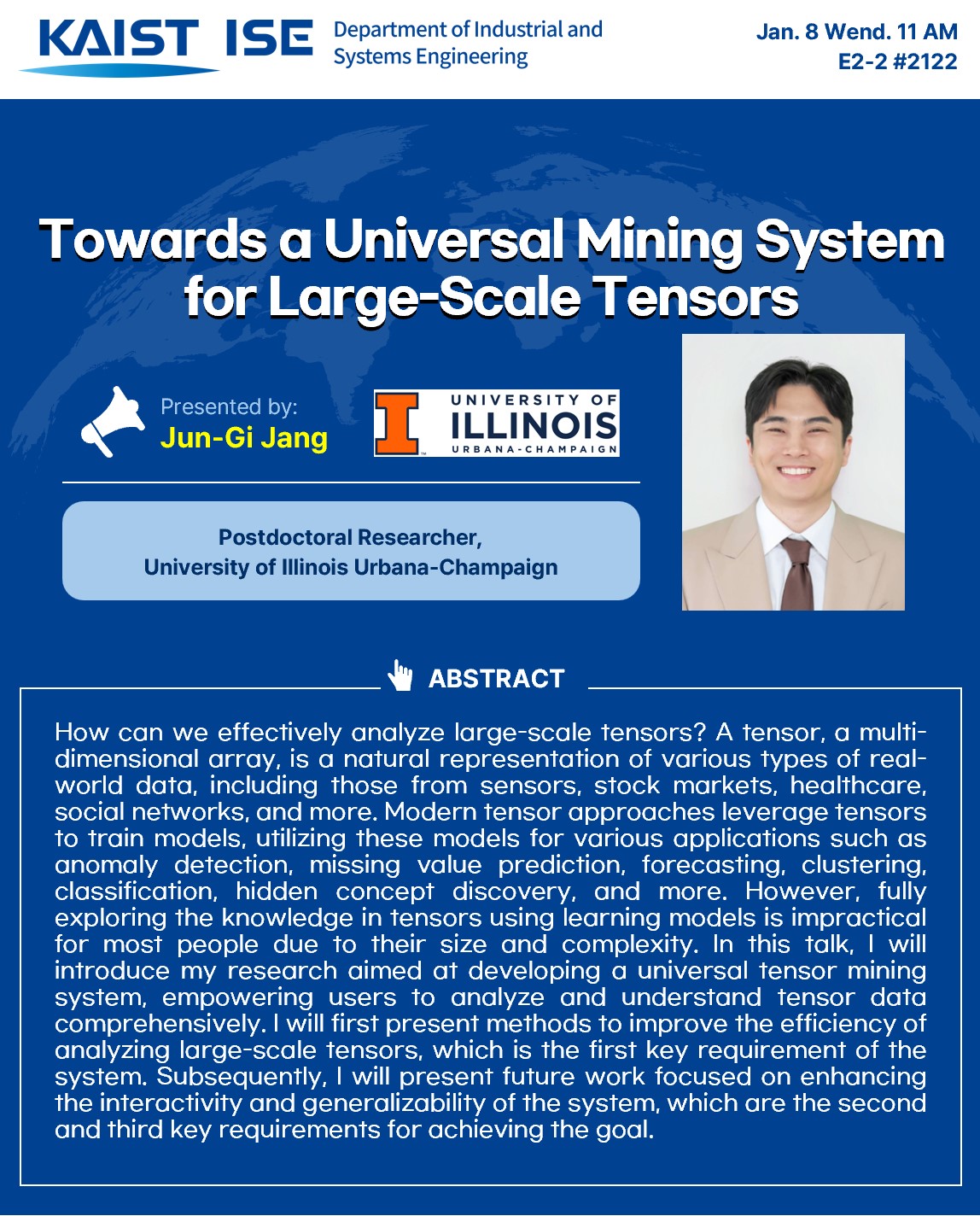News
- 관리자
- 2025.01.07
- 899
6. Abstract :
How can we effectively analyze large-scale tensors? A tensor, a multi-dimensional array, is a natural representation of various types of real-world data, including those from sensors, stock markets, healthcare, social networks, and more. Modern tensor approaches leverage tensors to train models, utilizing these models for various applications such as anomaly detection, missing value prediction, forecasting, clustering, classification, hidden concept discovery, and more. However, fully exploring the knowledge in tensors using learning models is impractical for most people due to their size and complexity. In this talk, I will introduce my research aimed at developing a universal tensor mining system, empowering users to analyze and understand tensor data comprehensively. I will first present methods to improve the efficiency of analyzing large-scale tensors, which is the first key requirement of the system. Subsequently, I will present future work focused on enhancing the interactivity and generalizability of the system, which are the second and third key requirements for achieving the goal.
--------------------------------------------------------------------------------------------------------------------------------------------------------------------------------------
We invite you to attend the following seminar.
■ Title : Towards a Universal Mining System for Large-Scale Tensors
■ Speakers : Dr. Jun-Gi Jang (Postdoctoral Researcher, UIUC)
■ Date : 2025.1.8(Wed), 11:00 ~ 12:00
■ Venue : E2-2, #2122 (seminar room)
■ Abstract :
How can we effectively analyze large-scale tensors? A tensor, a multi-dimensional array, is a natural representation of various types of real-world data, including those from sensors, stock markets, healthcare, social networks, and more. Modern tensor approaches leverage tensors to train models, utilizing these models for various applications such as anomaly detection, missing value prediction, forecasting, clustering, classification, hidden concept discovery, and more. However, fully exploring the knowledge in tensors using learning models is impractical for most people due to their size and complexity. In this talk, I will introduce my research aimed at developing a universal tensor mining system, empowering users to analyze and understand tensor data comprehensively. I will first present methods to improve the efficiency of analyzing large-scale tensors, which is the first key requirement of the system. Subsequently, I will present future work focused on enhancing the interactivity and generalizability of the system, which are the second and third key requirements for achieving the goal.


